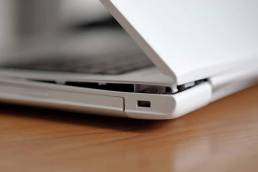
How to Avoid Common Laptop Damage
Laptop Damage Prevention: How to Safeguard Your Device
Laptops have become indispensable in our daily lives, whether for work, education, or entertainment. However, without proper care, they are susceptible to various forms of damage. In this guide, we’ll explore effective strategies for laptop damage prevention to ensure your device remains in optimal condition for the long haul.
Invest in Protective Measures:
To safeguard your laptop from physical harm, consider investing in a sturdy protective case or sleeve. These accessories provide an extra layer of defense against accidental drops, bumps, and scratches, significantly reducing the risk of damage.
Handle with Care:
When transporting your laptop, always handle it with care, using both hands to support its weight. Avoid carrying it by the screen or leaving it open while in transit, as these actions can increase the likelihood of damage.
Shield Against Liquid Exposure:
One of the most common causes of laptop damage is liquid spills. To prevent this, ensure all liquids are kept far away from your device at all times. Implementing strict rules against drinking near your laptop can help mitigate the risk of accidental spills and potential irreparable damage.
Prevent Overheating:
Overheating can pose a significant threat to your laptop’s internal components. To prevent this, invest in a quality cooling pad to help dissipate heat during prolonged use. Additionally, make it a habit to regularly clean the air vents and fan to remove dust and debris, ensuring optimal airflow and preventing overheating.
Protect Against Power-Related Issues:
Power surges can wreak havoc on your laptop’s delicate electronics. To safeguard against this, use surge protectors when charging your device. Furthermore, always unplug the power cord by gripping the plug firmly, rather than pulling on the cord itself, to avoid potential damage.
Software and Data Security:
Keeping your laptop’s software and data secure is essential for preventing potential damage. Ensure your operating system, antivirus software, and other programs are regularly updated to patch security vulnerabilities. Additionally, regularly back up your important files to external storage or the cloud to mitigate the risk of data loss in the event of hardware failure or a malware attack.
Maintain Keyboard and Screen Integrity:
Proper maintenance of your laptop’s keyboard and screen is crucial for preventing damage. Use a can of compressed air or a soft brush to remove dust and debris from the keyboard, avoiding the use of excessive force or liquids. When closing the laptop lid, do so gently to prevent pressure or objects from damaging the screen. Consider investing in a screen protector to minimize the risk of scratches and other forms of damage.
By implementing these proactive measures for laptop damage prevention, you can significantly prolong the lifespan of your device and ensure it continues to perform optimally for years to come. Remember, prevention is always preferable to repair, so invest the time and effort now to safeguard your laptop against future damage and avoid costly repairs or replacements down the line.